The right Chief Marketing Officer (CMO) drives the marketing strategy and vision of your company. They align marketing efforts with business goals, ensuring that the brand message resonates with the target audience and stands out in the competitive market.
CMO skills include expertise in market research, brand management, and digital marketing, as well as leadership and strategic thinking abilities.
Candidates can write these abilities in their resumes, but you can’t verify them without on-the-job CMO skill tests.
In this post, we will explore 8 essential CMO skills, 10 secondary skills and how to assess them so you can make informed hiring decisions.
Table of contents
8 fundamental CMO skills and traits
The best skills for CMOs include Data Analysis, Digital Marketing, Brand Management, Market Research, Content Strategy, SEO/SEM, Customer Segmentation and Budget Management.
Let’s dive into the details by examining the 8 essential skills of a CMO.
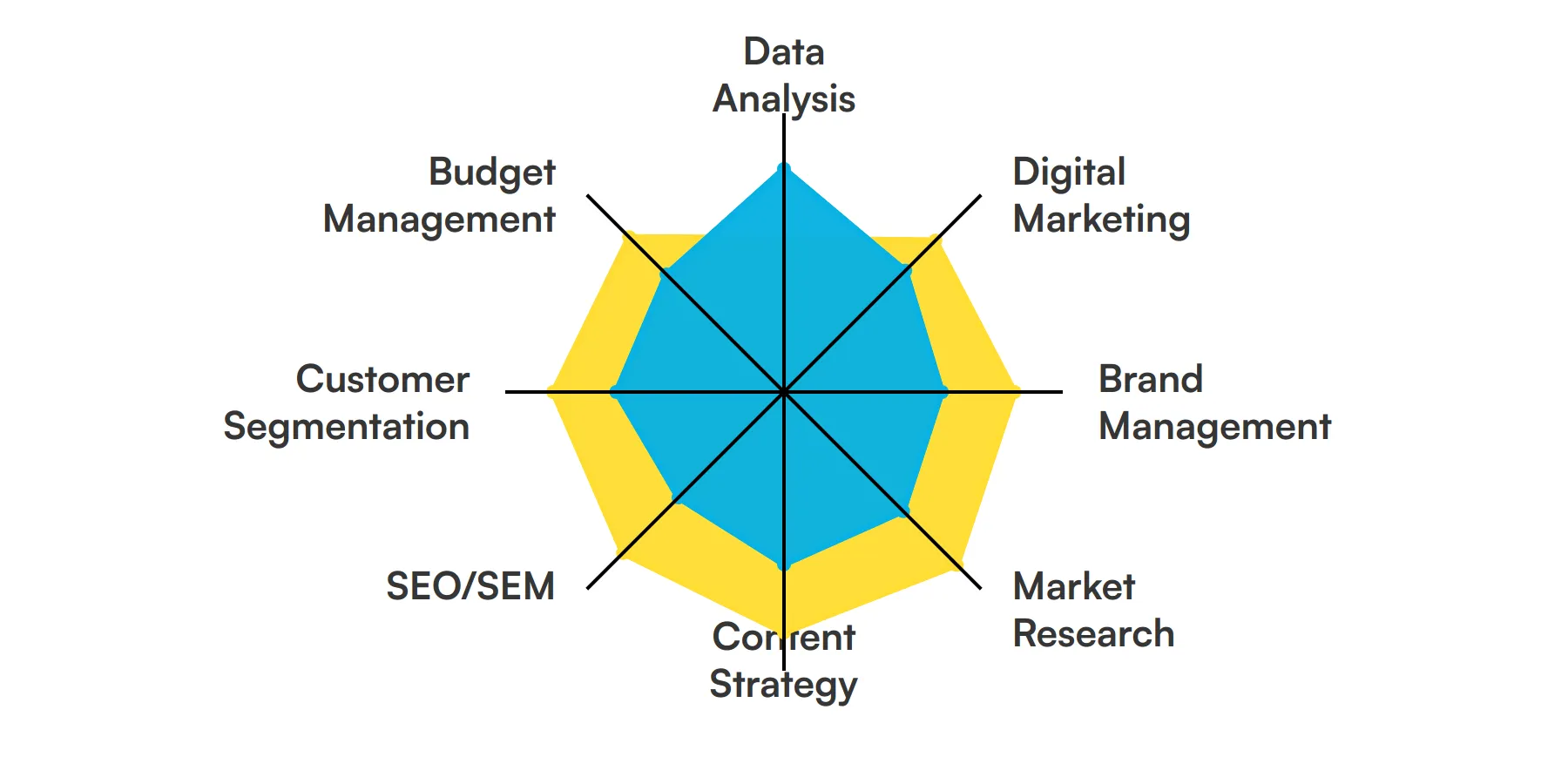
Data Analysis
Data analysis is the backbone of modern marketing. A CMO uses this skill to interpret market trends, customer behavior, and campaign performance. By leveraging data, they can make informed decisions that drive growth and optimize marketing strategies.
For more insights, check out our guide to writing a Data Analyst Job Description.
Digital Marketing
Digital marketing encompasses all online marketing efforts. A CMO must be adept at using digital channels like social media, email, and search engines to reach and engage customers. This skill is crucial for building brand awareness and driving online sales.
Brand Management
Brand management involves creating and maintaining a strong brand image. A CMO ensures that all marketing efforts align with the brand's values and messaging. This helps in building customer loyalty and differentiating the brand in a crowded market.
Market Research
Market research is about understanding the market landscape and customer needs. A CMO uses this skill to gather insights that inform product development, marketing strategies, and competitive positioning. It helps in identifying opportunities and mitigating risks.
Content Strategy
Content strategy involves planning and managing content to achieve business goals. A CMO uses this skill to create compelling content that attracts and retains customers. It’s essential for driving engagement and supporting the overall marketing strategy.
SEO/SEM
SEO (Search Engine Optimization) and SEM (Search Engine Marketing) are critical for online visibility. A CMO leverages these techniques to improve the website's search engine ranking and drive targeted traffic. This skill is key to increasing online presence and lead generation.
Check out our guide for a comprehensive list of interview questions.
Customer Segmentation
Customer segmentation is the process of dividing a customer base into distinct groups. A CMO uses this skill to tailor marketing efforts to different segments, ensuring more personalized and effective communication. It helps in maximizing the impact of marketing campaigns.
Budget Management
Budget management involves planning and controlling the marketing budget. A CMO must allocate resources efficiently to various marketing activities. This skill ensures that the marketing efforts are cost-effective and deliver a high return on investment.
For more insights, check out our guide to writing a Budget Analyst Job Description.
10 secondary CMO skills and traits
The best skills for CMOs include Public Relations, Email Marketing, Event Planning, Influencer Marketing, Graphic Design, Video Production, Copywriting, Web Development, Sales Alignment and CRM Management.
Let’s dive into the details by examining the 10 secondary skills of a CMO.
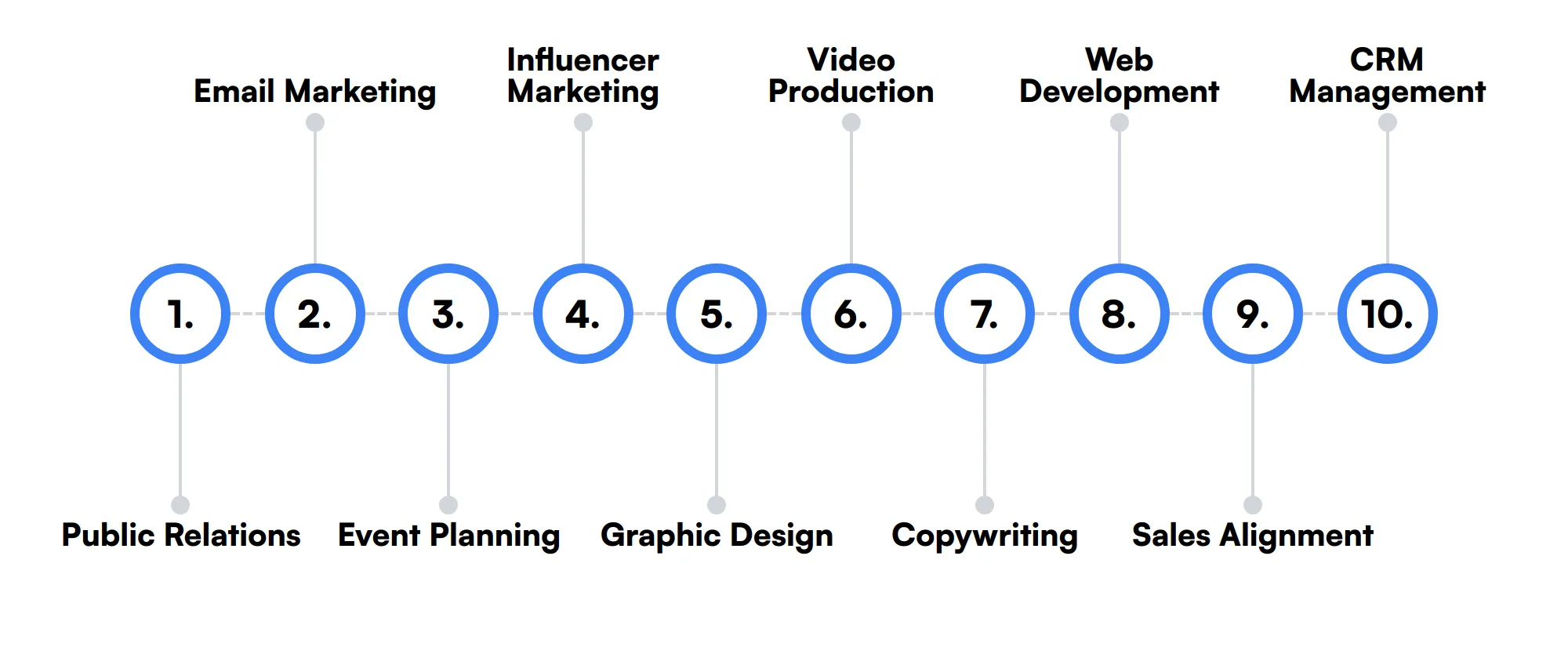
Public Relations
Public relations is about managing the company’s reputation. A CMO uses this skill to handle media relations, crisis communication, and public image. It helps in building trust and credibility with stakeholders.
Email Marketing
Email marketing involves sending targeted emails to prospects and customers. A CMO uses this skill to nurture leads, promote products, and build customer relationships. It’s a cost-effective way to drive conversions and customer retention.
Event Planning
Event planning is about organizing events that promote the brand. A CMO uses this skill to create memorable experiences that engage customers and generate buzz. It’s an effective way to build brand awareness and foster community.
Influencer Marketing
Influencer marketing leverages influential people to promote the brand. A CMO uses this skill to reach new audiences and build credibility. It’s a powerful way to amplify marketing efforts and drive word-of-mouth.
Graphic Design
Graphic design involves creating visual content that communicates the brand message. A CMO may not be a designer but should understand design principles to guide the creative team. It’s essential for creating visually appealing marketing materials.
Video Production
Video production is about creating engaging video content. A CMO uses this skill to produce videos that capture attention and convey the brand story. It’s a highly effective medium for marketing in the digital age.
Copywriting
Copywriting involves writing persuasive and compelling text. A CMO uses this skill to craft messages that resonate with the audience. It’s crucial for creating effective advertisements, emails, and social media posts.
Web Development
Web development is about building and maintaining the company’s website. A CMO should understand the basics to collaborate effectively with developers. A well-designed website is critical for online marketing success.
Sales Alignment
Sales alignment ensures that marketing and sales teams work together towards common goals. A CMO uses this skill to coordinate efforts, share insights, and optimize the sales funnel. It’s key to driving revenue growth.
CRM Management
CRM (Customer Relationship Management) involves managing customer interactions and data. A CMO uses this skill to track customer behavior, manage leads, and improve customer service. It’s essential for building long-term customer relationships.
How to assess CMO skills and traits
Assessing the skills and traits of a Chief Marketing Officer (CMO) is a nuanced process that goes beyond just reviewing a resume. It involves understanding how well they can handle the multifaceted challenges of modern marketing environments.
From analyzing data to managing budgets, a CMO's role is dynamic and demands a broad skill set including digital marketing, brand management, and SEO/SEM. To truly gauge their expertise, consider using specialized assessments that measure these competencies effectively.
For instance, Adaface offers tailored assessments that can help you evaluate a CMO's skills in areas like market research, content strategy, and customer segmentation. These tests are designed to reflect real-world scenarios, ensuring that candidates are not only knowledgeable but also capable of applying their skills effectively. By integrating Adaface assessments into your hiring process, you can achieve a 85% reduction in screening time while enhancing the quality of your hires.
Let’s look at how to assess CMO skills with these 6 talent assessments.
Data Analysis Test
Our Data Analysis Test assesses a candidate's ability to handle, modify, analyze, and interpret data. This test is designed to screen for experience with analyzing data to find possible outcomes, detect anomalies, extract meaningful insights, project estimates, and visualize data using charts and graphs.
The test evaluates skills in data modelling, data analysis, business analysis, data interpretation, and SQL. Candidates will navigate through scenario-based MCQ questions that cover data operations, data investigations, and popular data tools like Excel.
Successful candidates demonstrate proficiency in data queries, data operations, and data investigations. They also show a strong understanding of business analysis fundamentals and the ability to interpret data through charts and graphs.

Digital Marketing Test
The Digital Marketing Test evaluates a candidate's ability in SEO, inbound marketing, email marketing, distribution channels, paid ads, analytics, and end-user insight using real-life scenario-based questions.
This test covers social media marketing, search engine optimization, search engine marketing, ecommerce marketing, Google paid ads, Google Analytics, email marketing, and mobile marketing. Candidates will answer questions on content marketing, SEO, Google Analytics, Google AdWords, and email marketing.
High-scoring candidates demonstrate a deep understanding of digital marketing strategies, including ad servers and social media analytics. They also show proficiency in verbal reasoning, which is crucial for effective communication and strategy development.
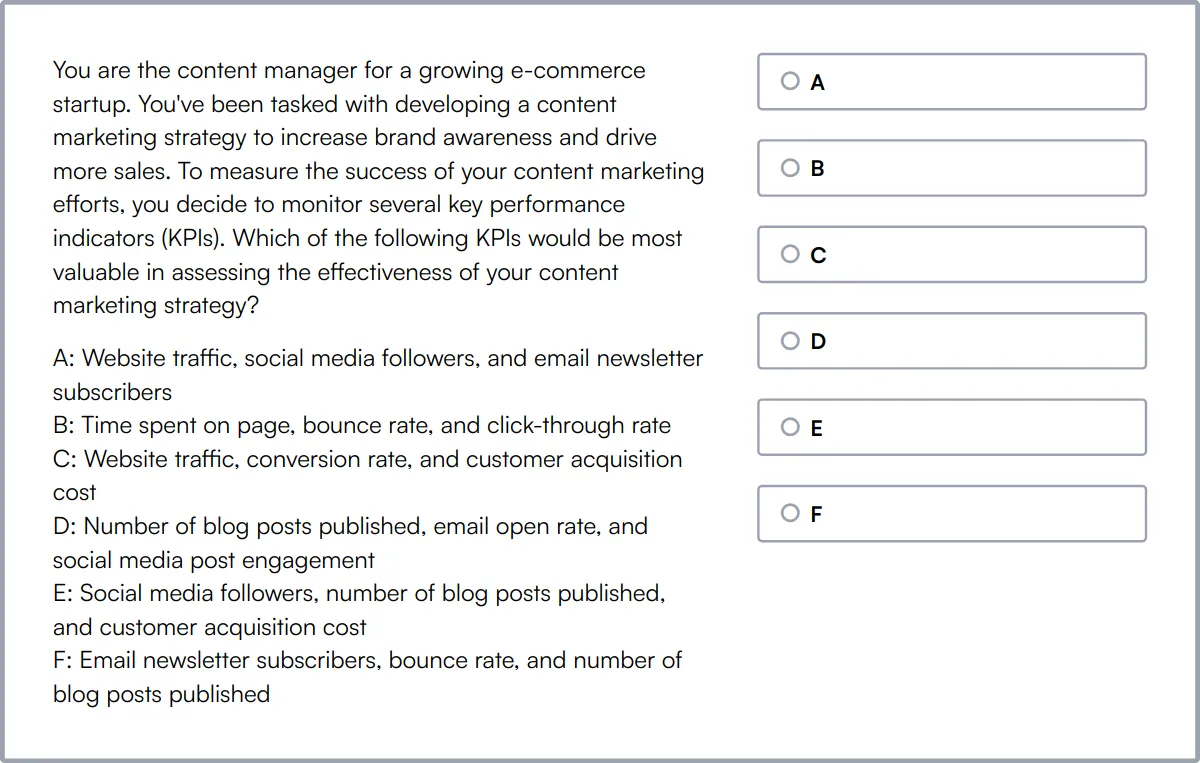
Product Marketing Management Test
The Product Marketing Management Test evaluates a candidate's knowledge of product marketing strategies, market analysis, customer segmentation, branding, pricing, and product launch techniques.
The test covers marketing basics, market analysis, digital marketing, SEO fundamentals, programmatic SEO, communication skills, and situational judgement. Candidates will answer questions on product marketing, product management, digital marketing, SEO, and communication.
Candidates who perform well demonstrate strong skills in developing effective marketing plans and executing marketing campaigns. They also show proficiency in situational judgement, which is essential for making informed decisions in dynamic market environments.
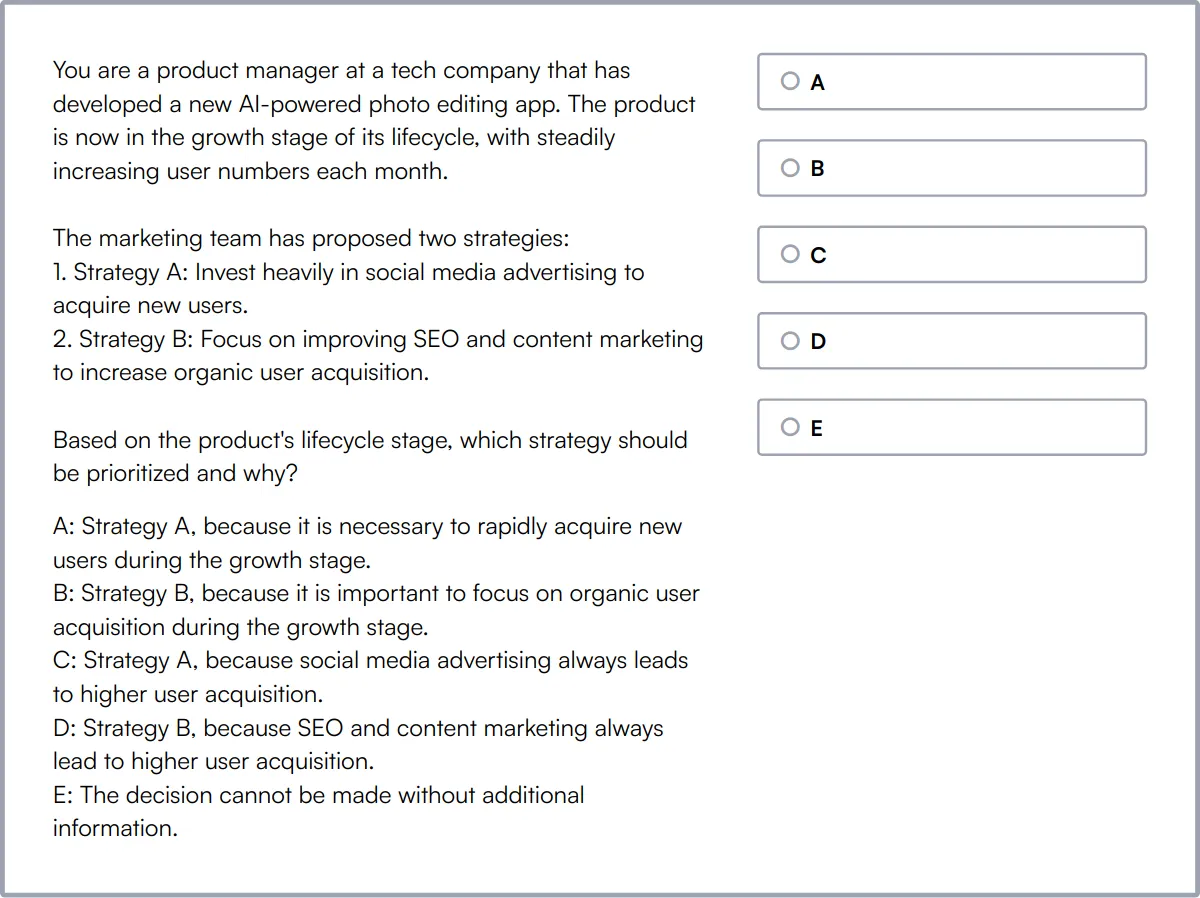
Market Research Test
The Market Research Test evaluates a candidate's knowledge and skills in market research techniques, data analysis, quantitative aptitude, business intelligence, and marketing aptitude.
This test covers market research, data analysis, market analysis, and data interpretation. Candidates will answer questions on market research, market analysis, data analysis, and data interpretation.
Successful candidates demonstrate a strong understanding of market research methodologies and data analysis techniques. They also show proficiency in interpreting data to derive actionable business insights.
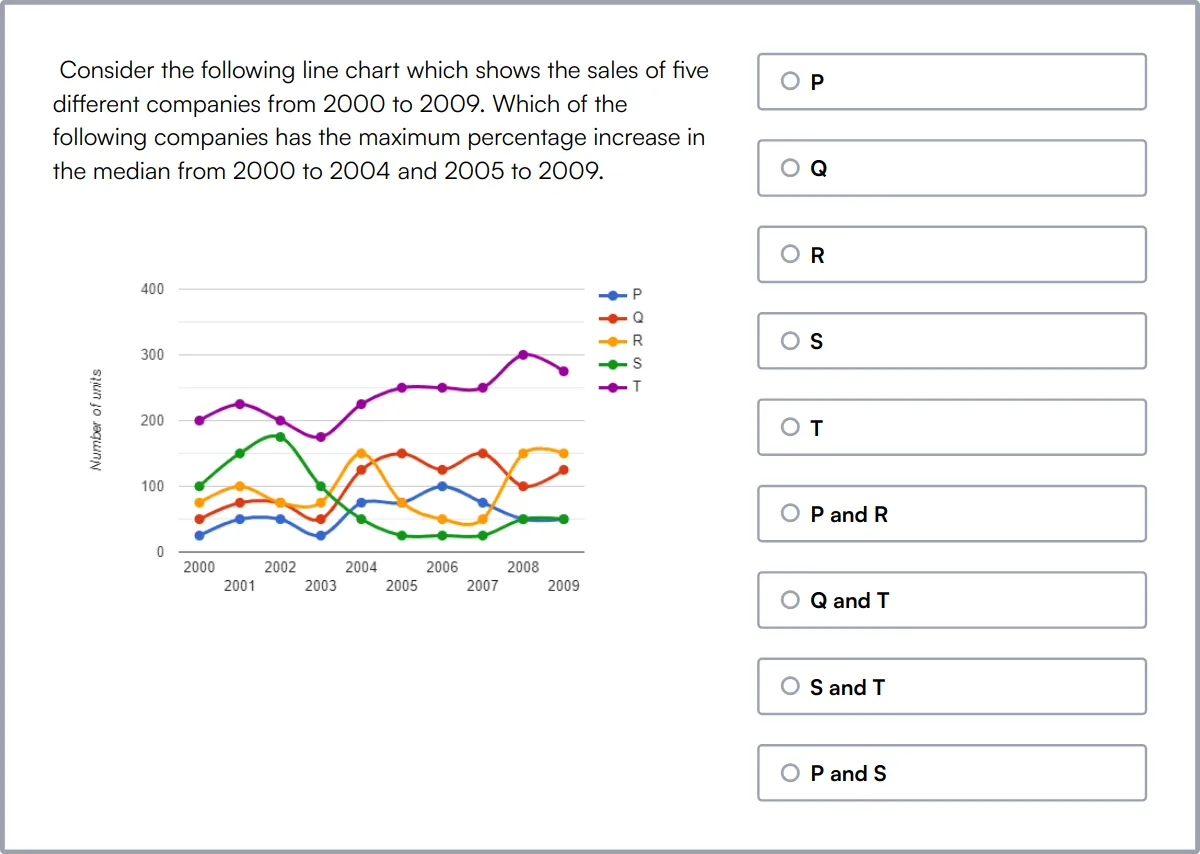
Content Strategy Test
The Content Strategy Test evaluates candidates' knowledge and skills in developing effective content strategies for digital platforms. It assesses their abilities in areas such as audience analysis, content planning, information architecture, and user experience optimization.
The test covers understanding and defining target audience, content auditing, content gap analysis, developing a content strategy, keyword research and SEO, content creation, content calendar development, and content performance measurement. Candidates will answer questions on content strategy, content marketing, attention to detail, and critical thinking.
High-scoring candidates demonstrate proficiency in multichannel content strategy, content governance, and crisis communication. They also show a strong understanding of the content lifecycle and user experience (UX) principles.
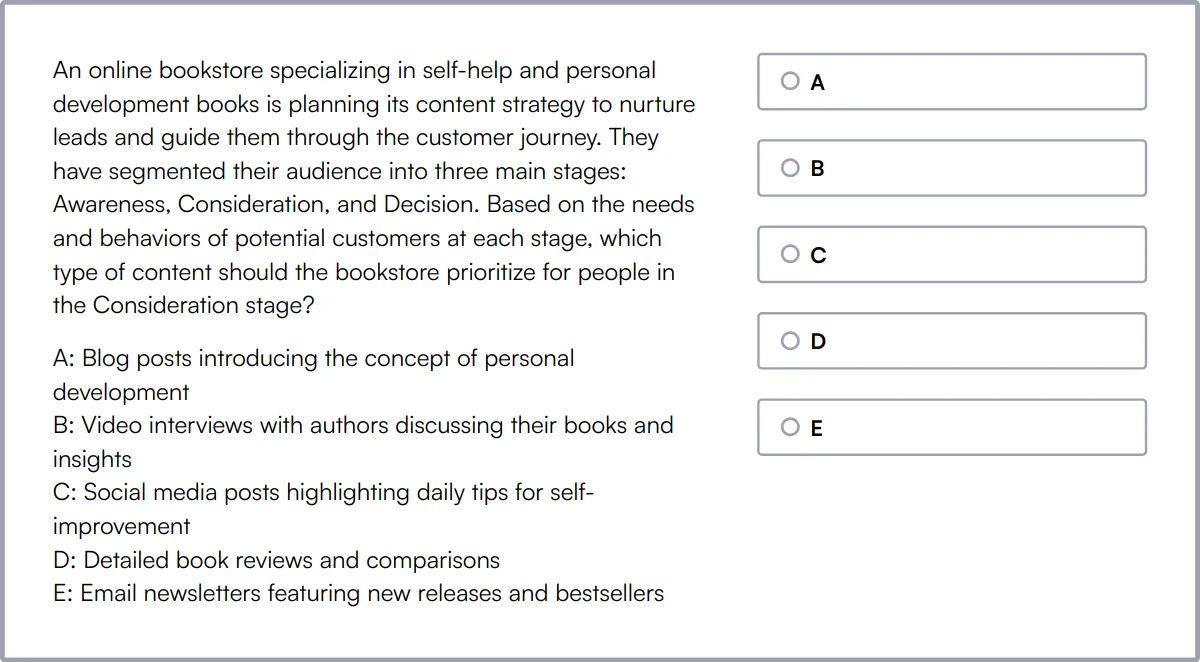
PPC Assessment Test
The PPC Advertising Test uses scenario-based multiple choice questions to evaluate candidates on their understanding of pay-per-click advertising concepts and strategies.
This test covers pay-per-click advertising, digital marketing, online advertising, keyword research, campaign optimization, ad copywriting, conversion tracking, budget management, market analysis, and analytics and reporting. Candidates will answer questions on Google AdWords.
Candidates who perform well demonstrate strong skills in campaign optimization, ad copywriting, and conversion tracking. They also show proficiency in budget management and analytics, which are crucial for effective PPC advertising.
Summary: The 8 key CMO skills and how to test for them
| CMO skill | How to assess them |
|---|---|
| 1. Data Analysis | Evaluate ability to interpret data and derive actionable insights. |
| 2. Digital Marketing | Assess proficiency in creating and executing online marketing campaigns. |
| 3. Brand Management | Check skills in maintaining and enhancing brand image and reputation. |
| 4. Market Research | Gauge capability to gather and analyze market data for strategic decisions. |
| 5. Content Strategy | Determine expertise in planning and managing content to engage audiences. |
| 6. SEO/SEM | Measure knowledge in optimizing search engine visibility and performance. |
| 7. Customer Segmentation | Evaluate ability to categorize customers for targeted marketing efforts. |
| 8. Budget Management | Assess skills in planning and controlling marketing expenditures. |
CMO skills FAQs
What skills should a CMO have for effective data analysis?
A CMO should be proficient in using analytical tools, interpreting data trends, and making data-driven decisions to guide marketing strategies.
How important is digital marketing expertise for a CMO?
Digital marketing is key for a CMO as it covers online campaigns, social media strategies, and understanding digital consumer behavior.
What are the best ways to assess a candidate's brand management skills?
Evaluate their experience with brand strategy, their role in previous brand campaigns, and their ability to maintain brand integrity across various channels.
How can a CMO use market research to improve marketing strategies?
Market research provides insights into customer preferences and market trends, helping CMOs tailor marketing efforts to meet target audience needs.
What role does SEO/SEM play in a CMO's responsibilities?
SEO/SEM are critical for increasing online visibility and driving targeted traffic to the company's website, directly impacting marketing success.
How should a CMO approach budget management?
A CMO should prioritize spending based on strategic goals, track ROI on marketing expenditures, and adjust budgets to optimize financial resources.
What skills are necessary for effective CRM management in a CMO role?
Skills include understanding customer data, segmenting audiences for targeted marketing, and using CRM tools to foster customer relationships.
Why is influencer marketing important for a CMO to master?
Influencer marketing helps in reaching a broader audience, enhancing brand credibility, and driving engagement through trusted voices in the industry.

40 min skill tests.
No trick questions.
Accurate shortlisting.
We make it easy for you to find the best candidates in your pipeline with a 40 min skills test.
Try for freeRelated posts
Free resources



